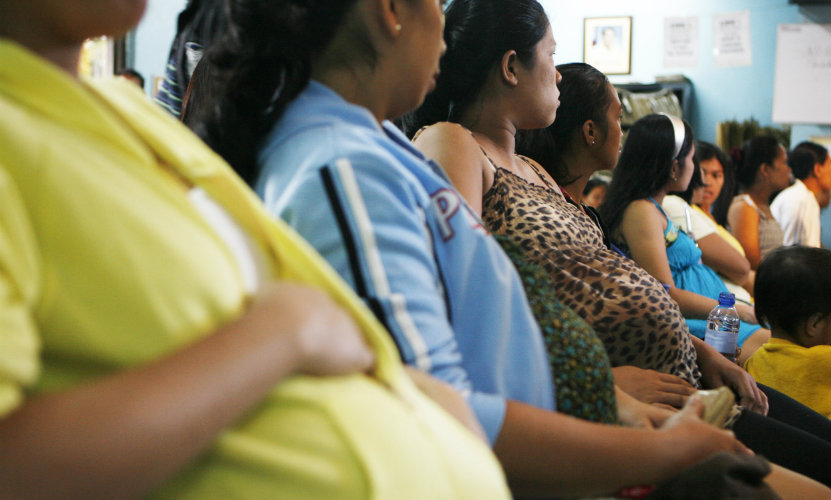
Senator-elect Win Gatchalian of the Nationalist People’s Coalition (NPC) moved for an intensified implementation of the reproductive health law, amid the proposal of incoming President Rodrigo Duterte to roll out a three-child policy in the country.
“I think what is more appropriate is intensified family planning program. Gawin nating available itong mga contraceptives at iba pang mga bagay para makatulong magplano ng pamilya,” said Gatchalian in an interview with Sheryl Cosim on Aksyon sa Umaga in TV5.
“Ang three-child policy dapat pag-aralan dahil wala sa kultura natin ang diktahan kung ilan ang anak mo. At paano yung mga lalampas sa three-child [policy], anong parusa o penalty ang ipapataw sa kanila?”
Gatchalian, a senior vice chair of the House Committee on Metro Manila Development, expressed his opposition as Duterte moved for a policy limiting the number of children per family.
The rookie senator added that stepping up the implementation of Republic Act No. 10354, also known as the “Responsible Parenthood and Reproductive Health Act of 2012”, would help the government manage resources better.
“Ako’y naniniwala na dapat talagang magkaroon ng intensified family planning program dahil talagang mabilis ang paglobo ng ating populasyon kaysa sa paglaki ng ating kita o resources ng ating bansa. Kaya parating nag-aagawan ng pondo ang iba’t ibang pangangailangan ng bansa dahil kulang na kulang sa malaki at mabilis na lumulobong populasyon.”
Gatchalian noted that fewer dependents in proportion to the working population means the government can pour our limited resources into other investments, such as free tertiary education for our youth.
“It is crucial that our government boost its efforts in implementing the RH law so we may benefit from sustainable growth,” he said.
For families, meanwhile, “it translates to greater investments per child.”
Gatchalian also supports moves in the legislative to bring back the P1-billion allocation for contraceptives that was removed in the budget, citing the difficulties on family planning expressed by his indigent constituents during his 9-year term as Valenzuela City chief executive.
“Yung mga pamilya, talagang hindi nila binibigyan ng pondo yung kanilang pagpaplano ng pamilya dahil talagang yung konting perang nakukuha nila ay nilalagay sa pagkain o medisina,” he recalled.
As of Aug. 1 last year, the country’s population has reached 100,981,437, based on the Philippines Statistics Authority report. Population grew by 1.72 percent yearly, on average, from 2010 to 2015, less than the 1.9 percent growth recorded during 2000 to 2010. (Monica Cantilero)


